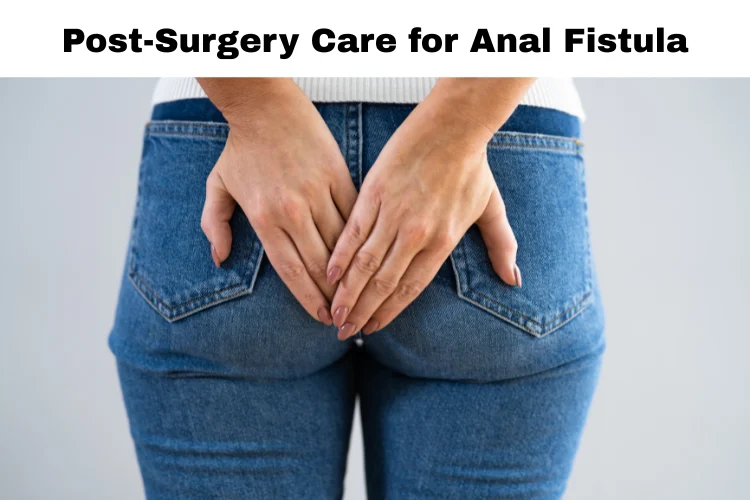Introduction
Have you been experiencing persistent pain, swelling, or discharge of pus near the anal region? If so, you might be dealing with an anal fistula—a small, infected tunnel that forms between the anal canal and the skin. Many people who suffer from this condition wonder, “Can an anal fistula heal on its own?”
Table of Contents
The simple answer is no. Unlike minor cuts or wounds that may close with time, an anal fistula is a persistent issue that does not heal naturally. If left untreated, it can worsen, leading to recurring infections, abscesses, and severe complications.
Understanding the symptoms, causes, and treatment options for an fistula is crucial for proper healing and long-term relief. In this blog, we’ll cover everything you need to know about fistula healing, from its initial signs to effective treatment approaches and post-surgical care.
What is a Fistula?
A fistula is an abnormal tunnel-like connection between two body parts. An anal fistula forms between the anal canal and the skin around the anus, usually due to an infection or abscess.
Anal Fistula Symptoms
- Pain and swelling near the anus
- Pus or blood discharge
- Skin irritation or itching
- Difficulty sitting due to discomfort
- Recurring abscesses
- Fever (if infection spreads)
Recognizing these symptoms early can help prevent further complications.
What Causes an Anal Fistula?
Anal fistulas typically develop due to an untreated anal abscess. Other causes include:
- Blocked anal glands leading to infections
- Chronic constipation or diarrhea
- Inflammatory bowel diseases like Crohn’s disease
- Previous anal surgeries or radiation therapy
- Poor anal hygiene
If left untreated, an anal fistula can cause persistent infections and discomfort.
Learn more about Anal Fistula Causes
Can an Anal Fistula Heal on Its Own?
The short and direct answer is no. Unlike minor wounds or infections that can heal naturally, an anal fistula does not close on its own. It is an abnormal tunnel between the anal canal and the skin that remains open, allowing bacteria to enter repeatedly. This leads to ongoing infections, discomfort, and potential complications if left untreated.
Why Does an Anal Fistula Require Medical Treatment?
An anal fistula typically forms after an anal abscess drains. Once the pus is released, a tunnel remains between the anal gland and the skin. This tunnel does not heal naturally because:
- The internal opening allows bacteria and fecal matter to enter, causing recurrent infections.
- The fistula tract remains open and does not close on its own.
- The inflammation and infection worsen over time, leading to more complications.
Without medical intervention, an anal fistula can become more severe, requiring more complex treatment later.
What Happens If an Anal Fistula Is Left Untreated?
If an anal fistula is not treated in time, it can lead to:
- Recurrent infections and abscesses – The fistula allows bacteria to enter, causing repeated swelling and pus formation.
- Persistent pain and discomfort – The inflammation worsens, making sitting, walking, and even daily activities painful.
- Spreading of fistula tracts – The tunnel can grow deeper and branch into multiple tracts, making treatment more complicated.
- Chronic condition – An untreated fistula can become a long-term issue, requiring more extensive surgery in the future.
- Potential complications – In rare cases, a long-standing fistula may increase the risk of further health issues, including severe infections.
The Importance of Early Treatment
Seeking timely medical care is crucial to prevent complications and ensure proper healing. Treatments range from antibiotics and lifestyle changes to minimally invasive procedures and surgery. Consulting a medical specialist at the earliest stage can lead to a faster recovery and a lower risk of recurrence.
Anal Fistula Treatment Options
While home remedies may offer temporary relief, they cannot cure an anal fistula. Here are the available treatment options:
1. Non-Surgical Approaches
- Antibiotics and pain relievers to control infection
- Warm sitz baths to ease discomfort
- High-fiber diet to prevent constipation
- Proper hygiene to avoid further infection
While these methods may reduce symptoms, they do not eliminate the fistula.
2. Surgical Treatment for Anal Fistula
- Fistulectomy – This procedure involves surgically removing the entire fistula tract to prevent further infection and promote healing. It is effective but may require longer recovery time.
- Seton Placement – A surgical thread (seton) is inserted through the fistula to keep it open, allowing continuous drainage and gradual healing. It is often used for deep or complex fistulas.
- Fistula Laser Treatment – A minimally invasive procedure where a laser fiber is inserted into the fistula tract to close it with controlled heat. It has a shorter recovery period and reduces the risk of complications.
- Flap Procedure – Used for complex or high fistulas, this technique involves covering the internal fistula opening with a flap of healthy tissue to close it and promote healing. It is useful for preventing recurrence.
Surgery is often the most effective way to achieve complete anal fistula healing.
Learn more about Anal Fistula Treatments
Is Anal Fistula Healed After Surgery?
Yes, surgery is the most effective way to treat an anal fistula, but the recovery process varies for each individual. The success of healing depends on factors such as the type of surgery performed, the patient’s overall health, and adherence to post-operative care. While surgery closes the fistula and removes the infection, proper care is essential to prevent complications and ensure complete healing.
Fistula Surgery Recovery Time
- Initial Healing: Most patients start to feel better within 2 to 6 weeks, with reduced pain and swelling.
- Full Recovery: It can take up to 3 months for complete healing, especially for complex fistulas or procedures involving deeper tissues.
Following the doctor’s post-operative care instructions, maintaining good hygiene, and eating a high-fiber diet can significantly improve recovery and reduce the risk of recurrence.
Post-Operative Care After Anal Fistula Surgery
Following proper post-operative care after anal fistula surgery is essential to prevent recurrence:
- Maintain hygiene: Keep the area clean and dry
- Avoid constipation: Eat fiber-rich foods and stay hydrated
- Take prescribed antibiotics to prevent infection
- Rest and avoid strenuous activities during recovery
- Follow up with your doctor for regular check-ups
These steps ensure better healing and reduce the chances of recurrence.
Preventing Future Anal Fistulas
Though some risk factors are unavoidable, you can reduce your chances of developing a fistula by:
- Maintaining good anal hygiene
- Eating a fiber-rich diet to prevent constipation
- Treating infections or abscesses early
- Managing underlying health conditions like Crohn’s disease
A healthy lifestyle can significantly lower the risk of anal fistulas.
Fequently Asked Question
How to heal an anal fistula naturally?
While home remedies such as warm sitz baths, a high-fiber diet, and proper hygiene can help relieve symptoms, they cannot completely heal an anal fistula. Since a fistula is an abnormal tunnel between the anal canal and the skin, it remains open and allows bacteria to enter. Without medical intervention, the infection persists, leading to complications. For complete healing, medical treatment or surgery is necessary.
Is an anal fistula healed completely after surgery?
Yes, in most cases, anal fistula surgery leads to complete healing, provided the patient follows proper post-operative care. The success of the healing process depends on factors like the type of surgery performed, the complexity of the fistula, and the patient’s overall health. While minor fistulas may heal quickly, complex or deep fistulas may take longer. Following the doctor’s advice, maintaining hygiene, and making dietary changes can help ensure full recovery.
How long does it take to recover from fistula surgery?
Recovery time varies based on the type of procedure and the patient’s healing ability. Generally:
Initial healing occurs within 2 to 6 weeks, during which swelling and discomfort gradually reduce.
Full recovery can take up to 3 months, especially for complex fistulas requiring more extensive surgery.
Proper wound care, a healthy diet, and avoiding strain during bowel movements can help speed up the recovery process.
Can an untreated fistula lead to serious complications?
Yes, leaving an anal fistula untreated can lead to severe health problems, including:
Recurrent infections and abscess formation, causing pain, swelling, and pus discharge.
Expansion of the fistula tract, leading to multiple interconnected tunnels that are harder to treat.
Fistula becoming chronic, requiring more complex surgery for treatment.
Systemic infections, where bacteria from the fistula spread to the bloodstream, posing serious health risks.
Early diagnosis and treatment are essential to prevent these complications and ensure effective healing.
What is the best treatment for an anal fistula?
The best treatment depends on the fistula’s severity, location, and complexity. However, surgical treatments are considered the most effective. Options include:
Fistulectomy – Complete removal of the fistula tract.
Seton Placement – A thread is used to keep the fistula open for gradual healing.
Fistula Laser Treatment – A minimally invasive option with faster recovery.
Flap Procedure – Used for deep or complex fistulas.
Consulting a specialist is crucial to determine the most suitable treatment option.
Does a fistula always require surgery?
In most cases, surgery is necessary for complete healing because the fistula tract does not close on its own. However, early-stage or mild fistulas may be managed temporarily with:
Antibiotics to control infection.
Pain relievers to reduce discomfort.
Lifestyle changes, such as a high-fiber diet and proper hygiene, to prevent worsening.
These measures do not cure the fistula but can help manage symptoms until surgery is performed.
Conclusion
An anal fistula does not heal on its own. Medical treatment, including surgery, is often necessary to prevent complications. Proper post-operative care ensures a smooth recovery and reduces recurrence risks.
Don’t ignore persistent anal discomfort—consult a gutcare clinincs in bangalore today for the best anal fistula treatment!




